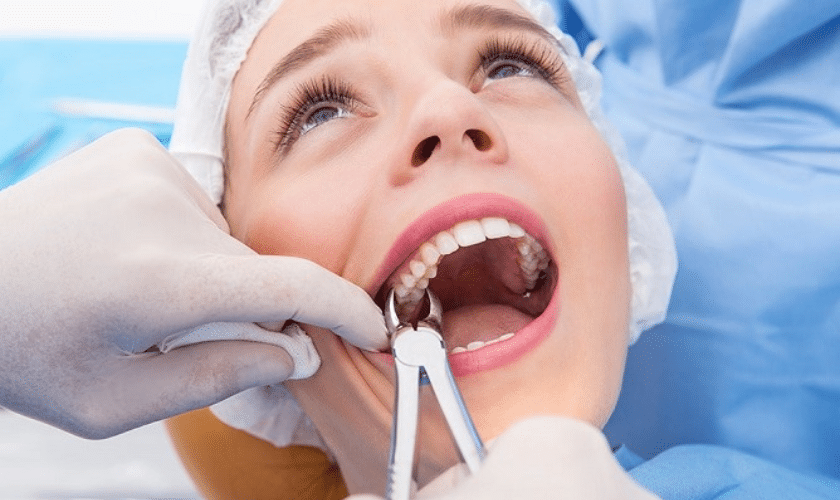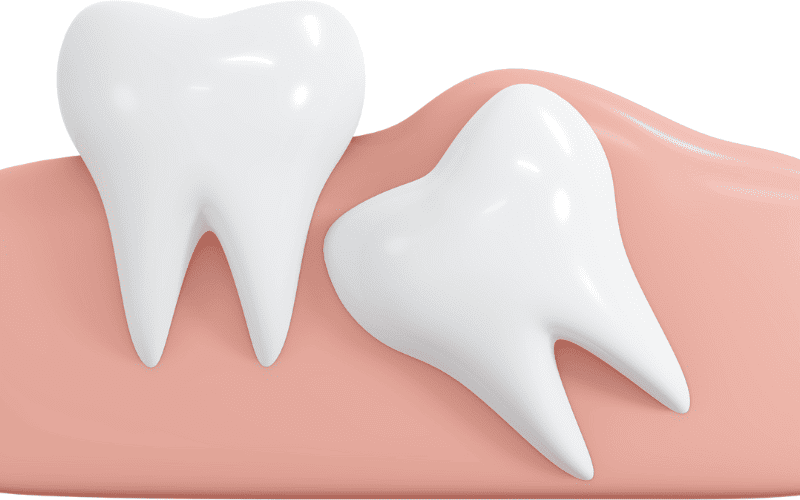ONLINE SCHEDULING AND VIRTUAL CONSULTS AVAILABLE

The Common Signs of Impacted Wisdom Teeth and What to Do About Them

Wisdom teeth, also known as third molars, are the last set of molars that typically emerge between the ages of 17 and 25. While they can be a valuable asset when healthy and properly aligned, they often wreak havoc when they become impacted. Impacted wisdom teeth can lead to various issues, causing pain and discomfort. In this guide, we’ll delve into the common signs that your teeth might be impacted and explore what steps you can take to manage the situation. We’ll also explore how wisdom tooth extraction in Plantation, FL, can help in getting rid of impacted teeth.
What Are Impacted Wisdom Teeth?
Wisdom teeth, also known as third molars, typically emerge at the back of the mouth, one in each corner. They usually appear between the ages of 17 and 25, a time commonly referred to as the “age of wisdom.” These molars can grow at weird angles, squished against neighboring teeth, or remain hidden beneath the gum’s surface. As a result, it can cause problems like pain, swelling, and general discomfort. Understanding this dental phenomenon is the first step in dealing with it. It’s like solving a riddle – once you know what’s going on, you can figure out the best way to address the situation. This can lead to a variety of complications and discomfort, necessitating prompt attention and often wisdom tooth extraction.
Signs of Impacted Wisdom Teeth
Pain and Discomfort: One of the initial signs of impacted teeth is persistent pain and discomfort in the back of the mouth. Besides, some individuals may experience throbbing or sharp pain, especially while chewing or biting down.
Swollen or Tender Gums: Swelling and tenderness in the gums around the wisdom teeth are common indicators of impaction. As a result, gums may appear red and inflamed, and touching the affected area may cause increased sensitivity.
Difficulty in Opening the Mouth: Impacted tooth can lead to stiffness in the jaw, making it challenging to open the mouth fully. This limitation in jaw movement may be accompanied by pain and discomfort.
Unpleasant Taste or Bad Breath: Partially erupted wisdom teeth can create pockets where bacteria can accumulate, leading to bad breath and an unpleasant taste. Maintaining proper oral hygiene becomes crucial to address this issue.
Swollen Jaw or Lymph Nodes: In some cases, impacted teeth can cause swelling in the jaw or the nearby lymph nodes. Swollen lymph nodes may indicate an inflammatory response to the impacted teeth.
What to Do?
Consult with a Dentist: If you suspect you have impacted wisdom teeth, the first step is to consult with a dentist. A thorough examination, often including X-rays, will help assess the position of the wisdom teeth and the extent of impaction.
Pain Management: Over-the-counter pain relievers can help manage the discomfort associated with impacted wisdom teeth. Your dentist may also recommend specific medications or oral rinses to alleviate pain and reduce inflammation.
Maintain Optimal Oral Hygiene: Proper oral hygiene is crucial in managing the symptoms of impacted teeth. Also, regular brushing, flossing, and using an antiseptic mouthwash can help prevent infection and maintain oral health.
Warm Saltwater Rinses: Gargling with warm salt water can provide relief by reducing inflammation and promoting healing. This simple home remedy can be performed several times a day.
Consider Wisdom Tooth Extraction: In cases of severe impaction or persistent issues, wisdom tooth extraction may be recommended. Extraction can prevent complications such as infection, damage to surrounding teeth, and the development of cysts or tumors.
The Wisdom Tooth Extraction Process
Wisdom tooth extraction in Plantation, FL, is a common dental procedure that involves removing one or more teeth. The process typically includes the following steps:
Initial Consultation
Your dentist will conduct a thorough examination, including X-rays, to assess the condition of your oral health, teeth and gums. Based on the evaluation, the dentist will discuss the need for extraction and provide information about the procedure.
Anesthesia or Sedation
Before the extraction, the dentist will administer local anesthesia or sedation to ensure a painless experience. The type of anesthesia used will depend on the complexity of the extraction and your comfort level.
Extraction Process
The dentist will carefully remove the impacted wisdom tooth, taking precautions to minimize any damage to surrounding tissues. In some cases, the tooth may need to be divided into sections for easier extraction.
Closure and Recovery
After the extraction, the dentist will stitch up the incision site if necessary and provide post-operative care instructions. Recovery time varies, but patients are typically advised to follow a soft diet and avoid certain activities during the initial healing period.
Impacted wisdom teeth can pose various challenges, but with timely intervention, you can maintain optimal oral health. Recognizing the signs early and seeking professional advice are key steps in preventing complications. Wisdom tooth extraction in Plantation, FL, offers a reliable solution to alleviate discomfort and promote a healthy smile. Your smile deserves the best care, and addressing impacted teeth is a crucial step toward achieving that goal. So, visit us at My Dentist For Life Of Plantation and get your impacted wisdom tooth extracted. Embrace the journey to a pain-free, confident smile by addressing the signs of impacted wisdom teeth promptly.





